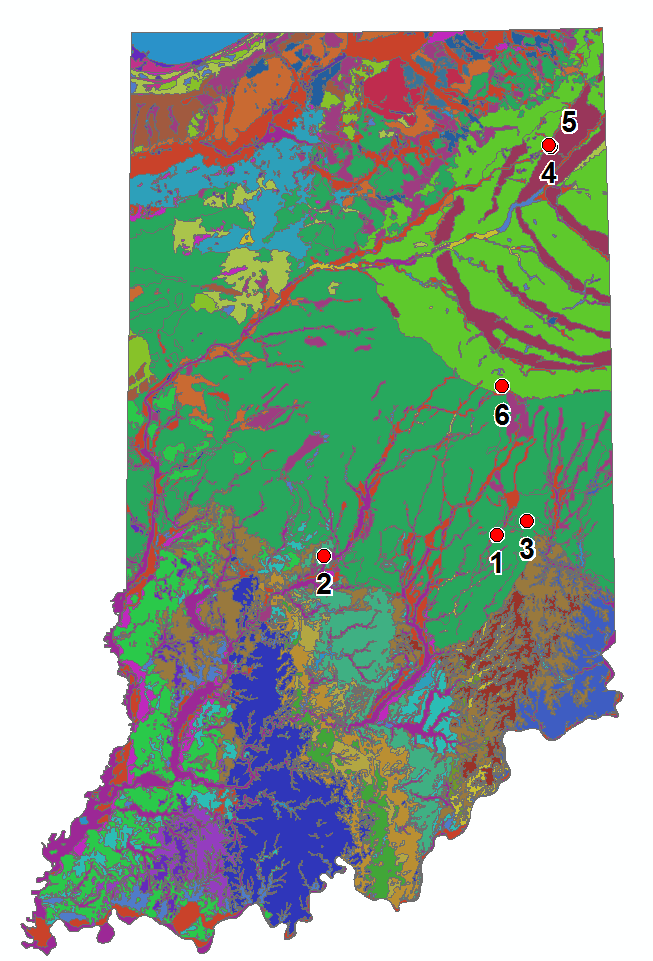
Map of Indiana showing the locations of Geothermal Monitoring Network sites and the diversity of surficial geologic deposits.
Shallow geothermal energy represents a renewable resource that can be further developed via ground-source heat pumps (GSHPs). The costs of these systems can be minimized by allowing designers and installers to make decisions about construction technologies that take into account the appropriate thermal properties and predominant moisture regime of the geologic material being utilized.
Researchers at the Center for Geospatial Data Analysis and Indiana Geological Survey developed a comprehensive monitoring network that provides in-situ measurements of shallow subsurface thermal conductivity, temperature gradients, and soil moisture. Continuous measurements of 1) thermal gradients in the upper 6 feet of the ground, 2) thermal conductivity, and 3) volumetric moisture content are collected at six monitoring sites near Indianapolis and Fort Wayne, the two largest population centers in Indiana
Although software allows GSHP installers to calculate optimal lengths and configurations of ground-coupling geothermal systems, there are input parameters that must first be determined for these applications, including soil thermal properties and earth temperatures. The fundamental control on heat transfer for a ground-coupled heat pump system is the thermal conductivity of the earth materials in which the system is installed. The determination of thermal properties for typical unconsolidated sediments in the upper 6 feet of the ground will support the design of more efficient systems by allowing GSHP installers to efficiently tailor the configurations of their systems to specific geological conditions and also to account for seasonal changes.
Site locations and data
Site name |
Site # |
Geologic setting |
Texture at 4-foot depth |
Bulk density |
1 |
alluvial terrace |
sandy clay loam |
1.11-1.32 |
|
2 |
alluvial terrace |
silt loam |
1.32-1.58 |
|
3 |
moraine crest |
silty clay loam |
1.41-1.79 |
|
4 |
outwash terrace |
sandy loam |
1.46-1.71 |
|
5 |
moraine crest |
clay loam |
1.64-1.80 |
|
6 |
till plain |
silt loam |
NA |
For more information contact Shawn Naylor (snaylor@indiana.edu).


